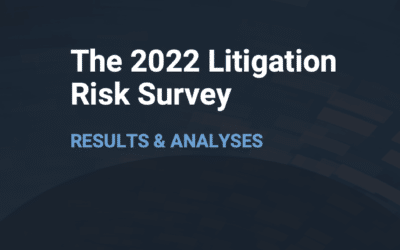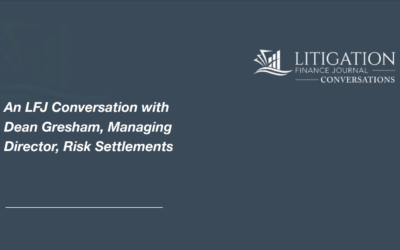Class action lawsuits are a much bigger risk today than they were 30 years ago. The internet has completely changed how consumers gain awareness of class action lawsuits and how they file claims for settlement benefits. As a result of these changes, class sizes have grown exponentially.
In years past, known class members received direct notice, via mail, of their right to file a claim. Additionally, claim notices and filing instructions might be posted in one or two relevant print publications. For many consumers, filing a claim was more trouble than it was worth.
Today, scores of websites and social media groups exist for two key purposes: (1) notifying the public of available class action settlement payouts; and (2) providing a quick and easy portal for filing claims. The impact of these sites is undeniable. For example, in one recent case against a supplement manufacturer, of the 44,000 consumers who filed a claim, approximately 41,000 came directly from class action promotion websites.
This article explores (a) the universe of these promotion sites; (b) the risks these sites pose to class action defendants; (c) the impact of free media and (d) whether, notwithstanding these websites, there is any way to minimize the risk of having a class action settlement going viral.
Free Money = Heavy Traffic
The reality of class action promotion sites is that they wouldn’t exist if they weren’t a successful revenue stream for their owners. And successful they are. The model is simple: the sites advertise “free money,” which promise generates huge online traffic, which induces advertisers to pay top dollar for ad placements guaranteed to reach big audiences. While many of them also claim to be promoting the common good by protecting consumers, they are undeniably generating income through advertising.
Indeed, one need look no further than the “Advertise with us” page of one of the top class action promotion sites. It boasts:
Top Class Actions is the #1 source of class action news online. Harness the power of our 5 million+ monthly page views and 705,000+ newsletter subscribers to drive up the number of Class Members who submit settlement claims or potential clients who are looking to participate in a consumer class action lawsuit or mass tort case. (Emphasis in the original.)
Other sites refer to class action payouts as “rebates” and advertise settlement funds on their homepage so they look like coupons that would be clipped from a newspaper. Still other sites purport to advertise class action settlement funds as part of the site owner’s “passion for finding the best deals, bank promotions, credit card offers, cash back, points & miles, and everything in between.”
Claim Veracity is Almost an Afterthought
If there is one commonality amongst these class action promotion sites, it is that they’re very good at communicating that many class payouts do not require proof of purchase. For example, on the “Frequently Asked Questions” page of one popular site, the following questions and answers are presented:
Do I need to prove I purchased these products?
Many settlements require no proof or purchase whatsoever.
Why don’t you need a receipt? Couldn’t anyone file a claim?
This trust based system does open them up to abuse, by people filing fraudulent claims. The legal philosophy that underpins the system is that as the party that wronged consumers, it is better the company bear the cost of these fraudulent claims than to deny the victims their just compensation.
The only reference to the truthfulness of claims is a brief statement that “lying is not cool.” Given this “free money, low risk” atmosphere, it’s no wonder that so many settlement claims go viral.
Risk of Free Media
In addition to claims promotion sites, settlements can go viral as a result of free media. At times, the news picks up the story organically. Often times, the promoter sites generate the media’s interest in a particular settlement. For example, in the Naked Juice settlement, ABC news reported that “Naked Juice fans who bought bottles of the beverage in the last six years could get up to $75 in payments from a $9 million class action settlement fund after plaintiffs questioned the company’s claims of ‘100 percent juice,’ ‘all natural’ and other labeling.” After ABC news ran its story, Huffington Post and others ran similar articles letting class members know that they were eligible for up to $75. As a result, 1.4 million Class Members went to the settlement website and filed 634,278 claims, seeking $31,713,900 in payments. Both Starkist and Redbull had settlements which were picked up by free media and experienced over 2.5 million claims each. In Redbull, the benefit was limited to $10 per household.
How to Avoid the Viral Nightmare
It appears these class action promotion sites are here to stay. Indeed, many are making the foray into social media as well. Top Class Actions has a nearly 750,000 person mailing list and 125,000 followers on Facebook alone. Additionally, free media is constantly looking for relevant content. Given the rampant popularity of the class action promotion concept and the thirst for relevant information, is there any way to avoid an onslaught of claims against class funds?
First, hire a notice expert who can design a media plan to meet constitutional due process, provide brand safe messaging and is intended to get the message out clearly to class members. At Risk Settlements, we can assist with this important task as we confront notice issues in every case.
Second, determine if there are appropriate antifraud provisions which can detect waste, fraud and abuse.
Third, empower the third party administrator to validate claims for fraud using customary processes.
Fourth, hedge your bets. Some companies seek risk transfer of known, threatened or pending litigation with solutions such as Class Action Settlement Insurance (“CASI”) or Litigation Buyout (LBO) Insurance (“LBO Insurance”). CASI provides an efficient resolution to expensive litigation at a known cost, mitigating a company’s concern that its settlement could go viral. LBO Insurance coverage is ideal when the company needs to ring-fence exposure due to M&A or other extraordinary business activity.
In this age of free online media and claims promoters, the financial risks and unknowns of class action lawsuits are greater than ever before. Popular brands seem especially vulnerable to viral media that spawn unprecedented take rates. In this climate, class defendants would be wise to seek any solution that could bring some certainty and finality to these inexact circumstances.







